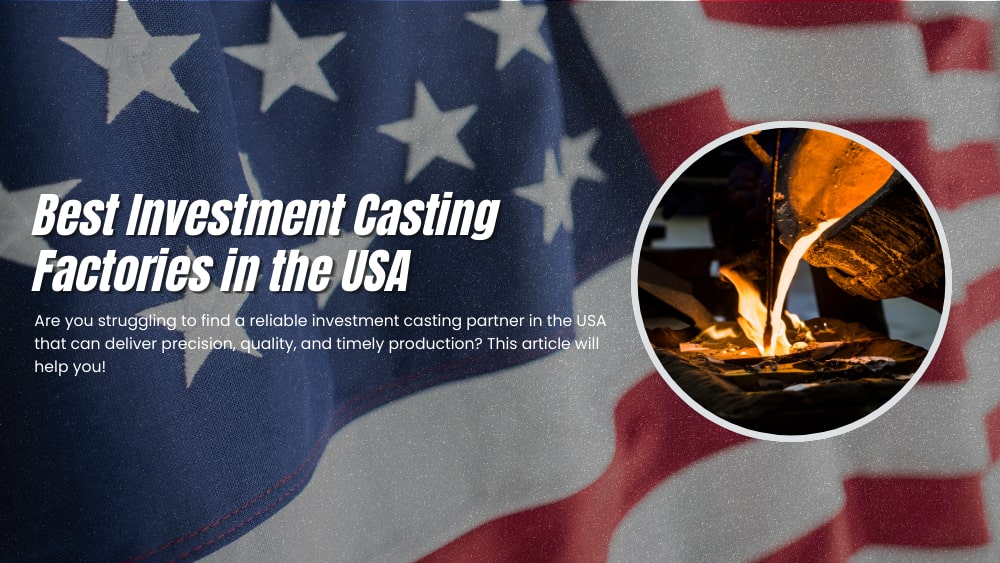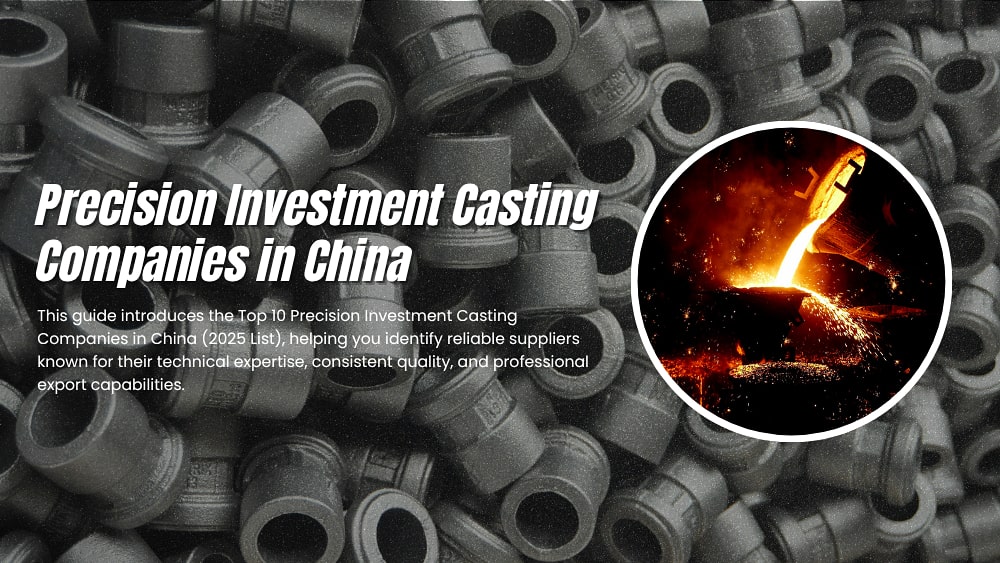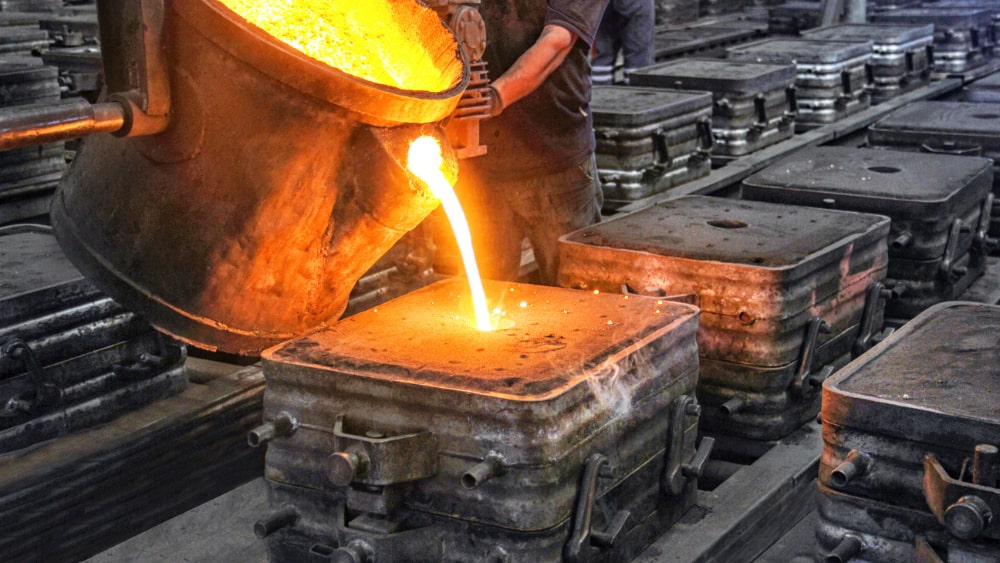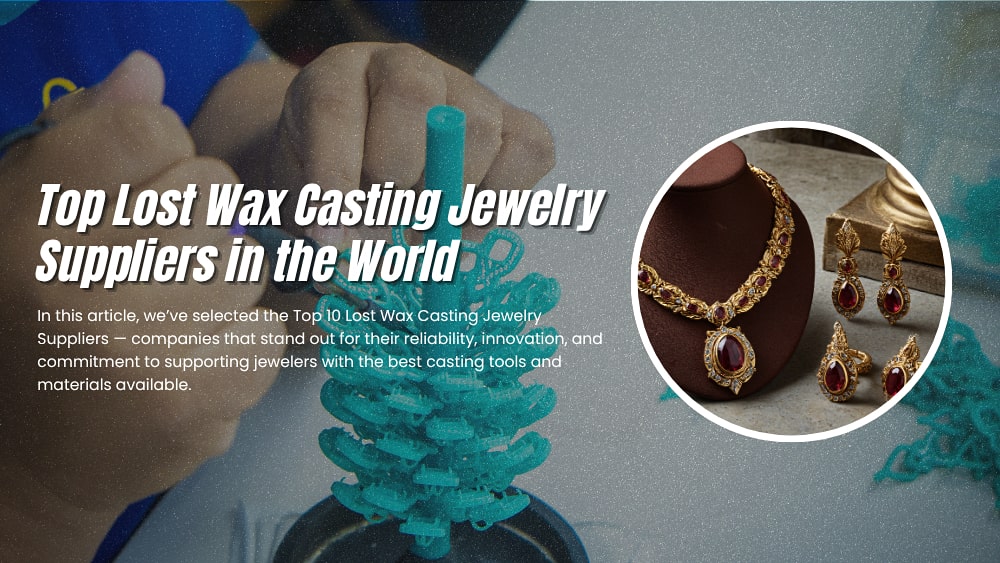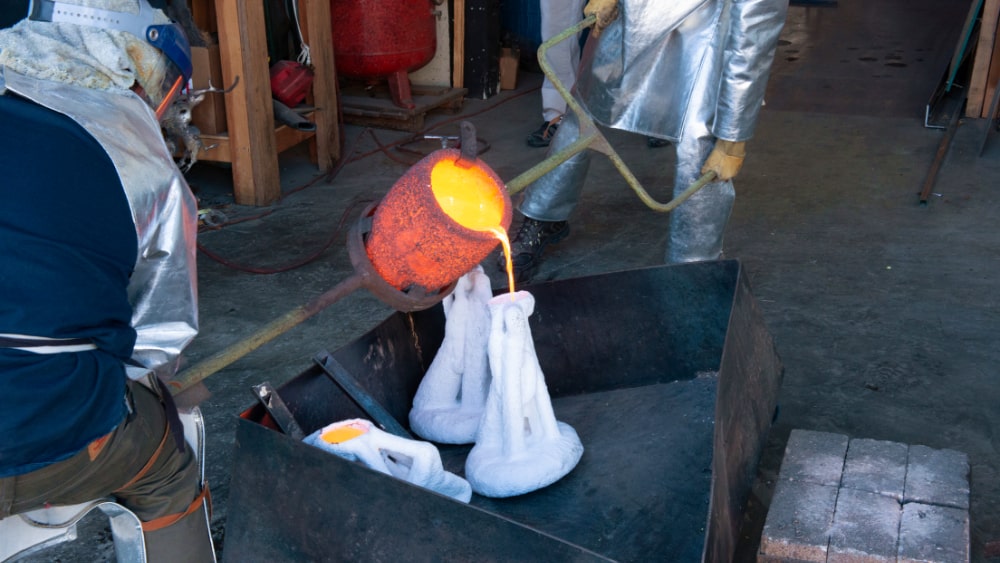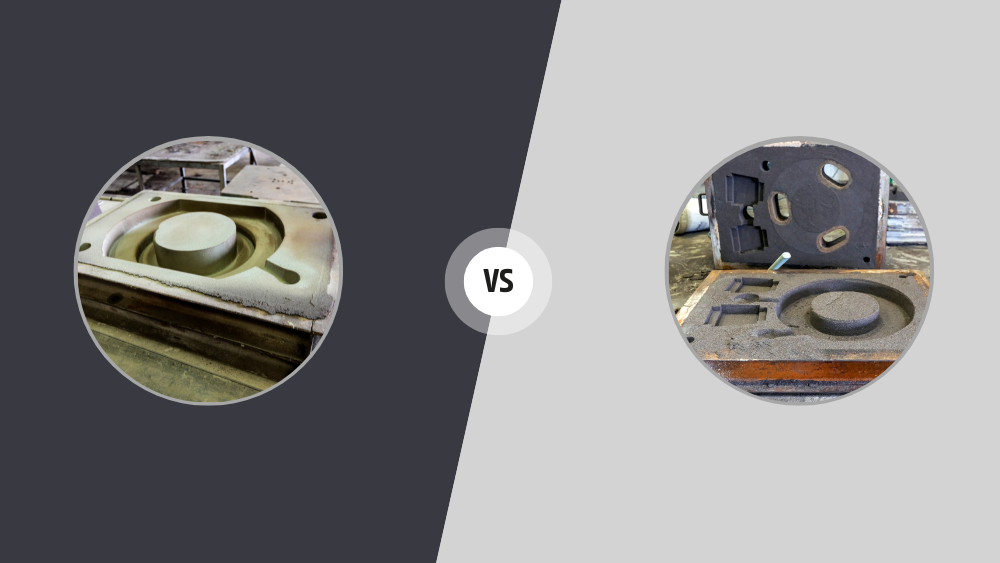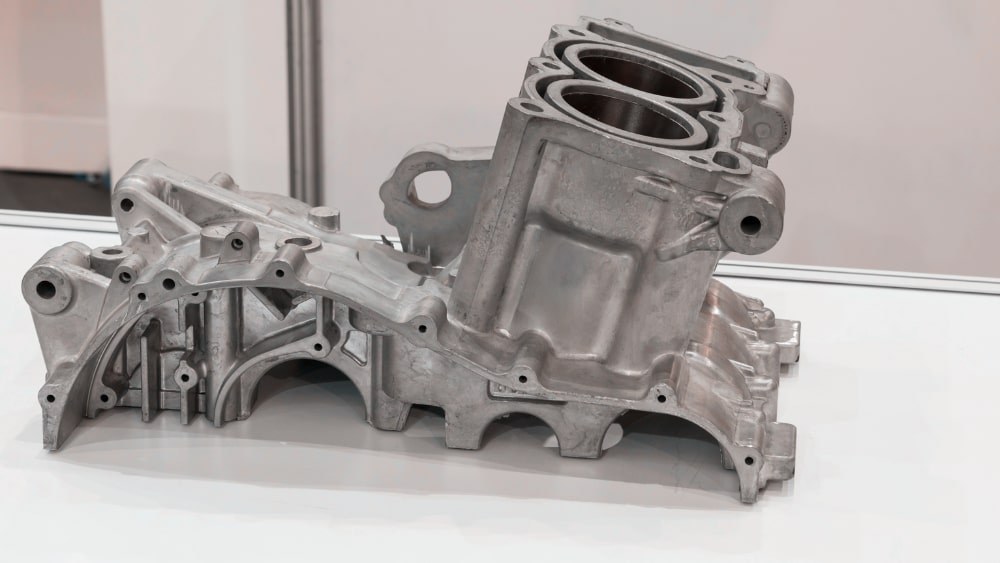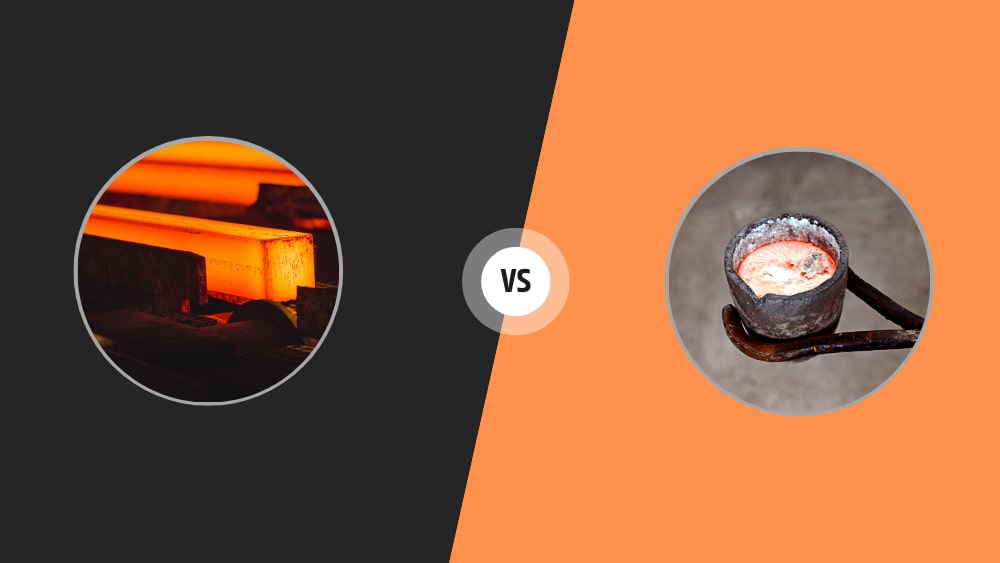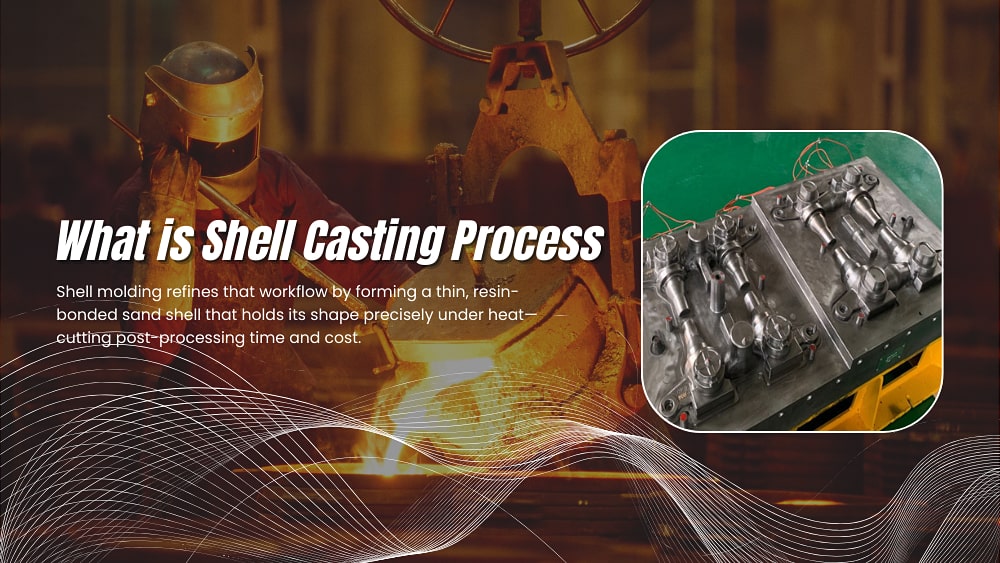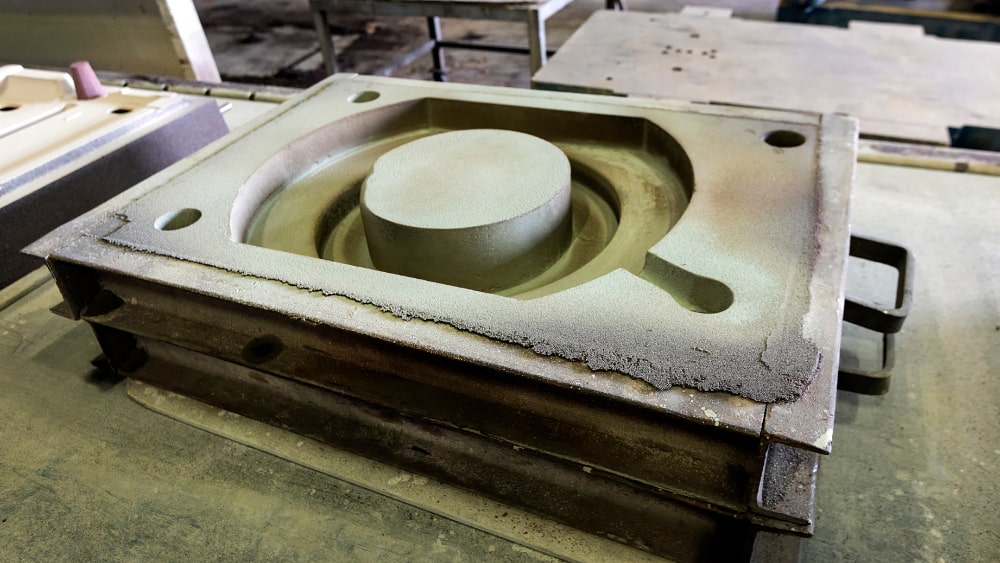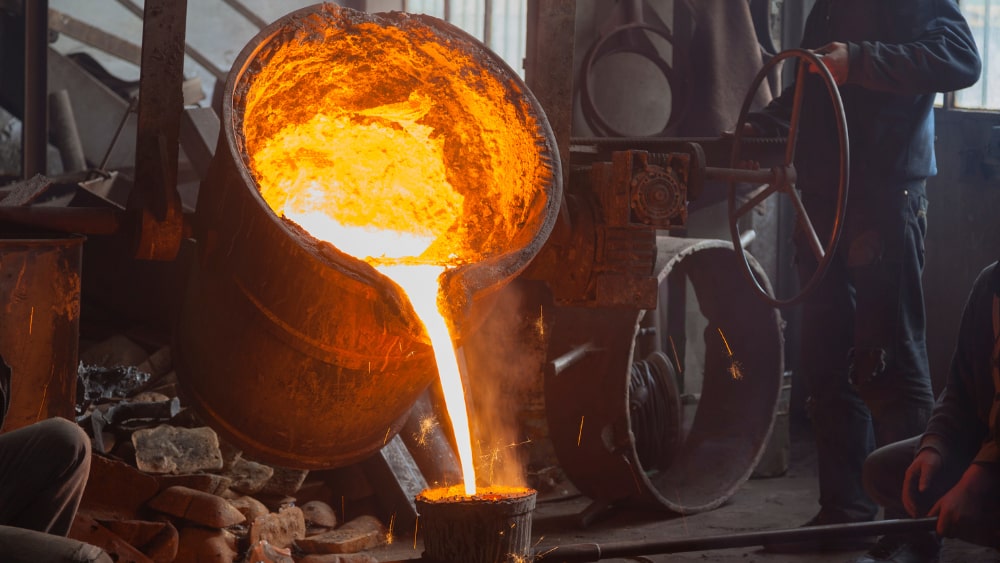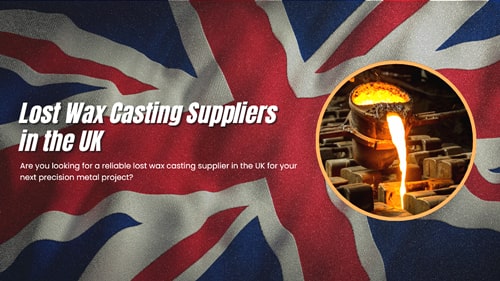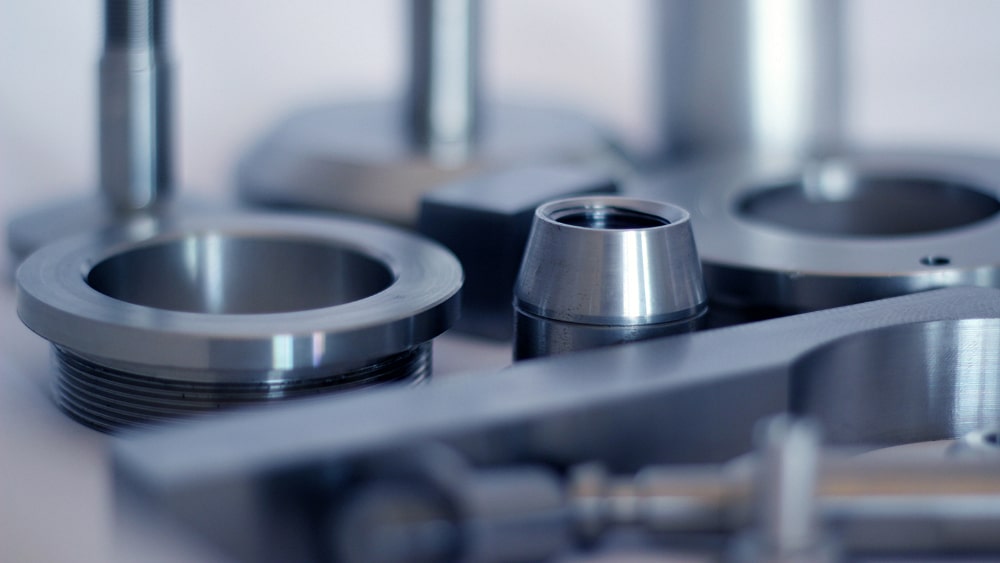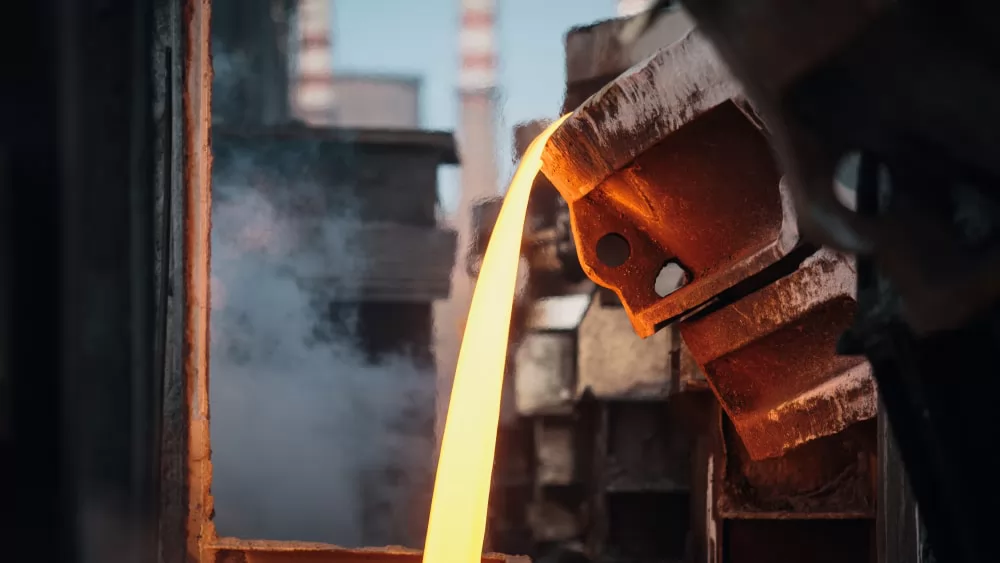
Are you planning to find Chinese metal casting suppliers in 2026 to optimize production costs and enhance supply chain competitiveness? More and more manufacturers, brand owners, and industrial enterprises are choosing China as their preferred sourcing location because it offers not only high-quality metal castings at more competitive prices but also significant advantages in terms of tight delivery times, batch stability, and customization capabilities. For companies looking to improve profit margins, enhance product performance, or stand out in a highly competitive market, sourcing metal castings from China has become one of the most direct and effective strategies.
This article, "China Metal Parts Casting Service: 2026 Sourcing Guide," will help you gain a more systematic understanding of the sourcing logic and advantages of the Chinese foundry industry, providing guidance for your next supplier selection.
What Metal Castings Can You Source and Customize in China?
| Category | Main Options | Key Characteristics / Customizable Scope |
|---|---|---|
| Casting Process | Sand Casting | Low cost, wide size range (from a few kilograms to over a hundred tons), suitable for large parts and small batches. |
| Investment Casting | Complex shapes, high surface finish quality, suitable for precision parts (e.g., stainless steel components). | |
| Die Casting | High efficiency, suitable for high-volume thin-walled parts (e.g., aluminum, zinc alloy housings). | |
| Centrifugal Casting | Specialized for symmetrical cylindrical parts (e.g., pipes, sleeves), dense structure. | |
| Common Materials | Cast Iron / Steel | High strength, wear-resistant (e.g., machine bases, gears, carbon steel parts). |
| Aluminum Alloys | Lightweight, good strength and corrosion resistance (e.g., automotive, electronic components). | |
| Copper Alloys | Corrosion resistant, good conductivity (e.g., valves, hardware fittings). | |
| Zinc / Magnesium Alloys | Zinc: Good for plating; Magnesium: Extremely lightweight (used in consumer electronics, aerospace). | |
| Value-Added Services | Design & Tooling | Provide design optimization suggestions and manufacture molds/patterns. |
| Heat Treatment & Machining | Enhance performance, provide precision machining, deliver "ready-to-use" parts. | |
| Surface Treatment | Painting, plating, anodizing, etc. | |
| Quality Inspection | Non-destructive testing such as X-ray, ultrasonic inspection to ensure quality. |
Summary: China provides one-stop casting solutions from design to finished product, covering all mainstream processes, materials, and post-processing services, applicable to numerous industries from automotive to consumer electronics. The key to success lies in selecting the right supplier with appropriate qualifications and capabilities.
Customizing Metal Products from China: 4 Key Steps
Choosing Reliable Chinese Metal Castings: A Four-Step Getting Started Guide Sourcing products from China can be a bit complicated, especially if you don't have a local branch. Here are the steps to get started:
1. Identify the Right Metal Manufacturers for Custom Production
Customizing metal products in China can be complex, especially if you don’t have an established local network or technical knowledge of metal manufacturing. The first step is to identify reliable, experienced, and cost-effective metal fabrication or casting suppliers that can meet your customization requirements.
Here’s how to get started:
Use online platforms and industrial B2B marketplaces
For companies that need custom metal components—whether cast, machined, stamped, or fabricated—online sourcing platforms remain the simplest and fastest way to begin your supplier search. You don't need in-person factory visits or local intermediaries to filter through potential manufacturers.
Some of the top online platforms for finding custom metal product manufacturers in China include:
-
1688.com:
A major sourcing hub used by domestic Chinese businesses, featuring millions of industrial suppliers offering services such as CNC machining, metal casting, sheet metal fabrication, die-casting, and more. Prices for high-volume custom orders can be significantly lower compared to international B2B marketplaces, though the Chinese-only interface can be a challenge. Thanks to the platform’s integration with WorldFirst, cross-border payments have become far more accessible.
-
TaoWorld:
Alibaba’s high-volume procurement platform offers access to hundreds of thousands of industrial suppliers capable of custom engineering, tooling, prototyping, and mass production. For buyers who require support with logistics or fulfillment, TaoWorld also provides built-in service options and express shipping on certain international routes. Payments must be made in CNH, which can be done through its WorldFirst integration.
-
Alibaba:
One of the world’s largest B2B platforms, Alibaba connects buyers with a vast network of metal manufacturers offering casting services (sand casting, die casting, investment casting), machining services, and fully customized metal product production. Buyers can compare technical capabilities, certifications, MOQ requirements, and pricing directly through the platform and manage payments and shipping within the same ecosystem.
Work with sourcing agents or engineering-focused intermediaries
A sourcing agent with expertise in metal manufacturing can help you evaluate supplier capabilities, review factory certifications, and negotiate pricing. They can also assist with technical drawings, material selection, and production feasibility—critical factors for custom metal products.
However, relying heavily on an agent means reduced control over your manufacturer relationships. Since the agent acts as both a gatekeeper and decision-maker, they may switch suppliers, mark up costs, or withhold factory details. Any conflict or communication breakdown with the agent could disconnect you from your manufacturer entirely.
Attend trade shows and industrial exhibitions
Trade fairs are an effective way to connect with metal manufacturers, inspect sample products, and evaluate production processes firsthand. Events such as the Canton Fair, CIIF (China International Industry Fair), and specialized metalworking expos gather thousands of casting, machining, and fabrication suppliers under one roof.
The downside: attending in person requires travel, accommodation, and sometimes visa arrangements—making it less practical for small businesses or new importers. Some countries host smaller China-supplier expos locally, but these happen infrequently and may still require travel.
2. Vet Potential Metal Manufacturers for Quality and Legitimacy
Once you’ve shortlisted several Chinese metal manufacturers you may want to work with, the next critical step is conducting due diligence. Custom metal products—whether cast, machined, or fabricated—require strict quality control and supplier reliability. Verifying that your suppliers are legitimate, capable, and compliant is essential before moving forward.
Verify the manufacturer’s documents and business details
The Chinese government maintains a public online database of registered enterprises known as the National Enterprise Credit Information Publicity System (NECIPS). You can use this database to verify a supplier’s business licence, registration status, legal representative, and other key business information by searching their USCI number or Chinese company name.
When possible, request a copy of the supplier’s export licence and have it reviewed by a qualified third-party expert. A legitimate export licence should display the company’s official name in Chinese, registered address, 18-digit business registration number, and a QR code linked to the NECIPS record.
You may also want to obtain third-party credit reports or financial documentation through services like Glo-BIS or ChinaCheckup.com. At this stage, it is also helpful to confirm that the supplier’s metal products—such as castings, machined components, or fabricated assemblies—are compliant with applicable Chinese export regulations.
Research each supplier independently
A few simple checks can help you determine whether a supplier is trustworthy. Start by searching the supplier’s name online along with keywords like “fraud,” “scam,” or “complaint” to see if any red flags appear. You should also check for public records of legal disputes or past lawsuits.
Next, review feedback from other buyers on sourcing platforms, social media, or business directories. Reputable manufacturers typically have a solid track record of genuine, mostly positive reviews from long-term customers, especially for custom metal products where quality consistency is critical.
When sourcing through platforms like Alibaba, TaoWorld, or 1688.com, look for verification badges, supplier ratings, transaction histories, and other trust signals. High transaction volumes, long-established accounts, and consistent customer reviews all indicate a more reliable supplier.
Visit and audit factories on-site when possible
If feasible, arrange an on-site factory visit or send a local representative, sourcing agent, or manufacturing consultant. A physical inspection allows you to evaluate equipment condition, tooling capabilities, casting or machining processes, worker safety, environmental compliance, and overall production capacity.
If you cannot visit the manufacturer personally, hire a third-party inspection or auditing service. These companies can evaluate factory safety, production processes, material handling, quality systems, and ethical practices—all especially important when producing custom metal components.
Request samples and evaluate communication
Whether or not you conduct an in-person audit, always request product samples before committing to a large order. For custom metal parts, this may involve producing prototype castings, machining samples from drawings, or building tooling for test runs. Start with a small MOQ or a trial batch to confirm the supplier can meet your specifications.
Throughout this process, pay close attention to how suppliers communicate. Note how quickly they respond, how clearly they answer technical questions, and whether they fully understand your drawings, tolerances, materials, and performance requirements. Determine whether you are speaking directly with the manufacturing factory or dealing through an intermediary trading company, as this can significantly impact pricing and quality control.
When placing your first test order, use a secure payment platform such as WorldFirst. Keep communication and payment records within the platform to maintain clear documentation in case of disputes or production issues.
3. Negotiate Terms and Arrange Logistics
If you’re new to importing custom metal products from China, you’ll need to navigate several logistical and administrative steps before your first shipment can arrive. While each step can be explored in greater depth in dedicated import guides, the essential process typically includes the following:
Set up proper payment and business accounts
To streamline payments and reduce costs, it’s important to have a multi-currency account that allows you to pay Chinese suppliers directly in CNH or CNY. Paying in local currency often leads to better pricing and faster settlement times.
Ensure your business is legally registered in your country, and that you’ve obtained all necessary tax IDs, importer numbers, and customs accounts. These credentials are required for purchasing, clearing, and receiving custom metal goods.
Secure the required import permits and certifications
Depending on your location and the type of metal goods you’re importing—such as cast components, heavy industrial parts, or specialized alloys—you may need additional import permits or approvals. Items categorized as controlled goods typically require extra documentation.
You may also need to apply for financial security measures such as banker’s guarantees, insurance bonds, or other import-related coverage depending on your country’s regulations.
Prepare documentation for customs clearance
Before your shipment departs China, ensure that all required documents are prepared, including:
- Commercial invoices
- Packing lists
- Insurance documents
- Product specifications and HS codes
- Import permits or declarations
You may process these documents through a customs broker, declaring agent, or an online customs declaration system depending on local regulations.
Coordinate international shipping with your supplier
Once all administrative requirements are complete, it’s time to arrange logistics with your metal manufacturer. Some suppliers offer full logistics support, while others expect the buyer to manage shipping independently.
Make sure you understand the differences between air freight, sea freight, and express shipping in terms of:
- Cost
- Transit time
- Cargo weight limitations
- Metal product-specific handling requirements
Metal components—especially castings or heavy fabricated parts—can have high shipping weights, so choosing the right logistics method is crucial.
Negotiate pricing, payment terms, and written agreements
Before placing your first custom production order, discuss payment methods, deposit requirements, tooling fees, production timelines, and shipping terms with your supplier. Always confirm:
- Unit pricing
- Tooling or mold costs
- MOQ requirements
- Lead times for casting, machining, or fabrication
- Incoterms (FOB, EXW, CIF, etc.)
Get all agreements in writing to avoid misunderstandings, especially for customized metal parts where specifications and tolerance requirements must be precise.
If you cannot pay in Chinese currency, suppliers may quote in USD or another foreign currency. These quotes are often higher to account for currency fluctuation risks. Having the ability to pay directly in CNH or CNY typically secures more competitive pricing.
You can also set up a dedicated multi-currency account—such as a World Account—to simplify supplier payments and reduce foreign exchange costs.
4. Arrange to Pay Metal Suppliers in Local Currency
When customizing metal products in China—especially castings, machined components, or fabricated assemblies—managing payments in the correct currency is crucial. China uses two forms of renminbi: CNY (onshore) and CNH (offshore), and understanding the difference is key to avoiding unnecessary costs and delays.
Understand the difference between CNY and CNH
Most Chinese metal manufacturers and industrial suppliers prefer, or even require, payments in CNY (onshore). Many wholesale and industrial marketplaces also restrict payments to CNY only. Because CNY can only circulate within mainland China, foreign buyers are often unable to pay directly unless they have a local entity or representative to facilitate conversion.
Some international banks offer CNY accounts, but these are rare due to China’s currency control policies. Even if available, the account options may be limited and come with additional administrative requirements.
Payment challenges using CNH accounts
A CNH account allows you to receive, hold, and transfer funds in offshore renminbi. However, many Chinese suppliers cannot or do not accept CNH payments, especially smaller casting factories, machining workshops, and OEM suppliers focused on domestic transactions. Even if your supplier allows CNH, you may still need to convert currencies to match their settlement preferences.
The cost of paying suppliers through a traditional bank
If you use a standard business bank account in your home country—for example, an SGD corporate account—to pay Chinese metal manufacturers, your bank will typically charge:
- A percentage-based foreign exchange fee
- Additional charges for each conversion step
- Unfavourable conversion rates
The cost becomes even higher if your supplier quotes prices in USD. In that case, your money may need to convert from SGD → USD → CNY → CNH → CNY again, depending on the bank and payment requirements. Each conversion adds more fees and FX losses, making your metal parts costlier than necessary.
The complication of dual-currency volatility
Adding to the complexity, CNY is restricted for use within China, while CNH is freely traded offshore. Although the two currencies generally maintain a 1:1 guideline exchange rate, market fluctuations can cause temporary mismatches. This introduces FX risk and affects your final landed cost for custom metal components.
A better solution: Use a multi-currency account
To reduce FX fees, avoid unnecessary conversions, and pay suppliers quickly, a better option is to use a multi-currency account that lets you:
- Hold both CNH and CNY
- Convert currency at competitive rates
- Pay Chinese suppliers in their preferred settlement currency
- Speed up international payments and reduce payment failures
Frequently Asked Questions about Metal Manufacturing Services in China
General Questions
Q: What types of metal manufacturing services are available in China?
A: Common services include CNC machining, metal stamping, die casting, forging, sheet metal fabrication, welding, laser cutting, bending, and assembly.
Q: Why do companies choose China for metal manufacturing?
A: Advantages include lower production costs, advanced manufacturing capabilities, a large supplier base, and expertise in high-volume and precision manufacturing.
Q: Is it safe to manufacture metal parts in China?
A: Yes, if you work with reputable suppliers, conduct proper due diligence, and implement quality control measures (such as third-party inspections).
Manufacturing Process & Capabilities
Q: What metals are commonly used in Chinese manufacturing?
A: Commonly used metals include aluminum, stainless steel, carbon steel, brass, copper, titanium, and various alloys, selected based on the application.
Q: What is the typical order quantity for metal manufacturing in China?
A: Suppliers can handle both small-batch (prototype) and large-scale (mass production) orders. MOQs (Minimum Order Quantities) vary by manufacturer.
Q: Can I get custom metal parts made in China?
A: Absolutely. Chinese manufacturers are highly capable of producing custom metal components according to customer designs, drawings (e.g., CAD, 3D models), and specifications.
Q: What is the lead time for metal part production in China?
A: Lead times vary depending on complexity and quantity, but typically range from a few days for simple prototypes to several weeks for large production runs.
Cost & Pricing
Q: Is metal manufacturing in China really cheaper?
A: Generally, yes — labor and production costs are lower than in many Western countries, which often translates to more competitive pricing. However, costs depend on material, complexity, and volume.
Q: What factors affect the cost of metal manufacturing in China?
A: Factors include material type, part complexity, tolerances, surface finish, order quantity, tooling or mold costs (for stamping/die casting), and shipping fees.
Shipping & Logistics
Q: How are metal parts shipped from China?
A: Options include sea freight (cost-effective for large volumes), air freight (faster, suitable for urgent or small shipments), and express courier (for samples).
Q: Who handles customs and import regulations?
A: Typically, either the supplier, a freight forwarder, or your own import team. It's important to understand import duties, product compliance, and HS codes for metal goods.
Supplier & Communication
Q: How do I find a reliable metal manufacturing partner in China?
A: Use trusted platforms (like Alibaba, Made-in-China, Global Sources), attend trade shows (e.g., Canton Fair), or work with a sourcing agent or consultant.
Q: What language barriers might I face when dealing with Chinese manufacturers?
A: While many manufacturers have English-speaking staff, communication can still be a challenge. Clear technical drawings, specifications, and sometimes a sourcing agent can help bridge the gap.
Q: Should I use a sourcing agent when manufacturing metal parts in China?
A: A sourcing agent can help with supplier vetting, negotiation, quality control, and logistics, especially if you’re unfamiliar with the local market.
Technical & Design Support
Q: Do Chinese manufacturers accept CAD files or 3D models?
A: Yes, most manufacturers accept CAD files (e.g., STEP, IGES, DXF, DWG) and 3D models for precise manufacturing, especially for CNC machining and rapid prototyping.
Q: Can I request specific surface finishes or treatments?
A: Yes — common finishes include powder coating, anodizing, plating (e.g., chrome, nickel, zinc), brushing, polishing, and heat treatment. Be sure to specify requirements clearly.
Conclusion: Your Partner for High-Quality Metal Manufacturing in China
China remains a global leader in metal manufacturing, offering unmatched capabilities in precision machining, casting, stamping, and fabrication—all at highly competitive costs. Whether you need custom parts, large production runs, or specialized metal treatments, Chinese factories provide the expertise and flexibility to bring your vision to life.
That’s where we come in. With deep expertise in China’s metal manufacturing sector, we help businesses navigate the entire process—from design review and supplier matching to quality control, inspections, and on-time delivery. Our goal is simple: to ensure your metal parts are manufactured to the highest standards, without the headaches.
Ready to start your metal manufacturing project in China? Contact us today for a free consultation.
Related content recommendations:
Top 10 Precision Investment Casting Companies in China (2026 List)
Why Are China Casting Companies so Favored by Overseas Users?

